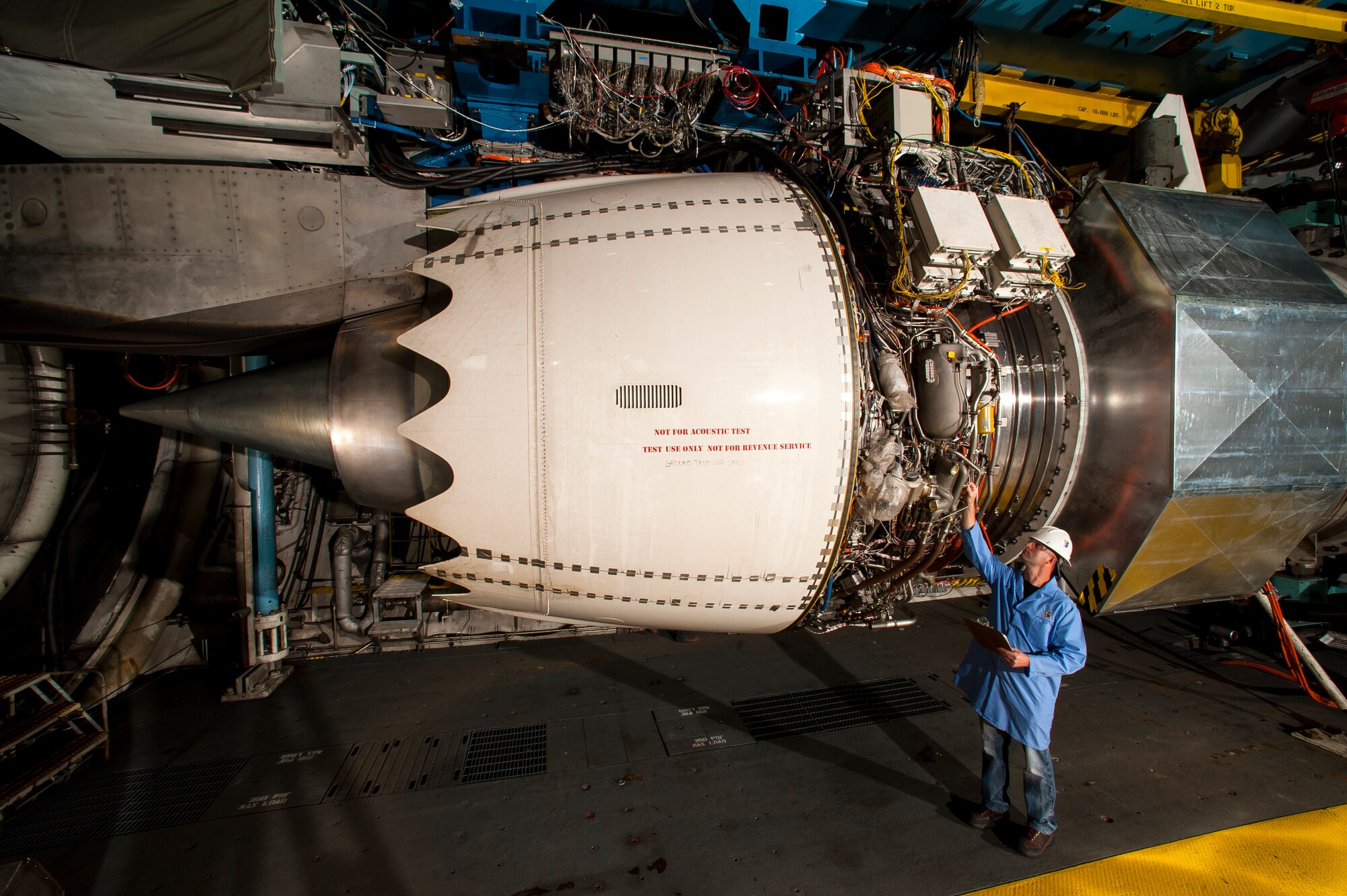EN 311 Propeller Engine Endurance Testing
The EN 311 standard sets forth a stringent framework for ensuring the durability and reliability of propeller engines used in aviation. This testing is critical for aerospace manufacturers, as it ensures that propulsion systems meet strict safety requirements before being integrated into aircraft. The test involves operating the engine under various simulated flight conditions over extended periods to assess its performance and longevity.
During EN 311 tests, propeller engines are subjected to a series of cycles that replicate real-world operational scenarios, including takeoffs, climbs, descents, and landings. These cycles are designed to subject the engine to maximum stress conditions while maintaining realistic flight dynamics. The testing process is highly complex, involving sophisticated instrumentation to monitor performance parameters such as RPM, fuel flow, exhaust gas temperature (EGT), and vibration levels.
The primary goal of EN 311 testing is to identify potential failure points in the engine's components under extreme operating conditions. This includes assessing the durability of critical parts like blades, bearings, and seals. By simulating extended flight times and varying environmental conditions, manufacturers can ensure that their engines meet or exceed regulatory standards.
Accurate specimen preparation is essential for reliable test results. Before initiating EN 311 testing, engineers must carefully inspect the engine to ensure it meets all pre-test criteria. This includes verifying that the engine has been properly assembled and that any necessary adjustments have been made. The engine is then placed on a dedicated test rig, which can simulate various flight conditions with precision.
The testing process itself involves operating the engine under a series of cycles designed to stress the components beyond typical operational limits. This allows engineers to observe how each part performs over time and identify any potential weaknesses that could lead to failure in service use. Post-test analysis is equally important, as it provides insights into areas where improvements can be made for future iterations of the engine design.
EN 311 testing is not just about assessing individual components; it’s also about evaluating how well these parts work together as a system. The test conditions are designed to push the limits of what an engine is expected to handle, providing valuable data on both short-term performance and long-term reliability.
Compliance with EN 311 standards is crucial for aerospace manufacturers who want to ensure their products meet international safety regulations. Failure to comply can result in product recalls, legal action, and significant reputational damage. By investing in thorough testing through facilities like Eurolab, companies can demonstrate their commitment to quality and safety while maintaining competitive advantage.
Industry Applications
| Aerospace Manufacturer | Engine Model Tested | Total Test Hours (ET) | Test Cycles |
|---|---|---|---|
| British Aerospace | GKN Aerospace TPE500 | 1,200 ET | 40 Cycles |
| LATAM Airlines Group | Fokker 30 Series Propulsion System | 850 ET | 25 Cycles |
| Airbus | Trent XWB-97 Engine | 1,500 ET | 60 Cycles |
- Simulates real-world flight conditions to evaluate engine performance and longevity.
- Provides data on component reliability under extreme stress conditions.
- Ensures compliance with international aviation standards, enhancing safety.
- Aids in the development of more efficient and reliable propulsion systems for future aircraft designs.
Eurolab Advantages
At Eurolab, our commitment to excellence extends beyond compliance; it encompasses innovation and continuous improvement. Our state-of-the-art facilities are equipped with cutting-edge technology that allows us to provide accurate, reliable test results every time.
We have a team of highly skilled engineers who specialize in aerospace testing, ensuring that each project receives the attention it deserves. This expertise translates into better test plans and more insightful post-test analyses, helping our clients make informed decisions about their product development processes.
Our facilities are ISO/IEC 17025 accredited, which guarantees that we adhere to strict quality control measures throughout all stages of testing. This accreditation is a testament to our unwavering dedication to accuracy and precision in every test conducted here.
In addition to EN 311 compliance, Eurolab also offers other services tailored specifically for the aerospace industry. These include structural integrity assessments, thermal cycling tests, and fatigue life evaluations among others. By leveraging these additional capabilities, our clients can ensure their products meet all necessary requirements not just once but continuously throughout their lifecycle.
Collaborating with Eurolab means more than just getting your product tested; it’s about partnering with experts who understand the complexities of modern aerospace engineering. Together, we work towards creating safer, more efficient aviation solutions that stand up to rigorous scrutiny.
Competitive Advantage and Market Impact
- Ensures compliance with international standards, enhancing safety and reliability.
- Provides critical data on component durability under extreme conditions.
- Helps manufacturers identify potential issues early in the development process, reducing costs associated with late-stage modifications or failures.
The ability to conduct EN 311 testing ensures that aerospace companies can deliver products that meet high safety standards and are reliable over extended operational lifetimes. This capability gives them a significant competitive edge by fostering trust among customers and regulators alike. Additionally, successful completion of these tests demonstrates a company’s commitment to innovation and quality assurance, which is increasingly becoming a differentiator in an ever-evolving market.
By investing in thorough testing through facilities like Eurolab, companies can differentiate themselves from competitors by delivering superior products that exceed expectations in terms of safety, performance, and longevity. This not only enhances their reputation but also contributes positively to the overall health of the aviation industry as a whole.





